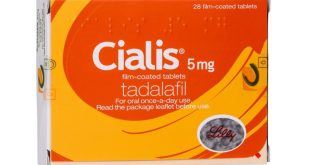Many of us have experienced the oddity known as the “food trance state,” which is often used to refer to the post-meal fatigue that many of us experience. There are rational explanations for the tendency to feel sluggish after eating, even if it can seem like a typical reaction to a hearty feast. Modalert 200mg might help you remain awake and concentrate if you’re feeling drowsy at work. We explore factors contributing to fatigue after a feast and look at protocols for managing this common occurrence.
Food should be a fulfilling and enjoyable experience rather than a one-way ticket to sleep land. Remember, food is fuel, not a cradle song. You may prepare your body for optimal performance without sacrificing readiness by comprehending the physics behind post-lunch sleepiness and implementing these suggestions. Purchase Modafinil 200 as well. Concentrate on what you’re doing. Eat your delicious meals, get over your food ignorance, and embrace the energy you desire to make the most of your day in this manner!
Stomach-Related Energy Channel
Because digesting demands energy, your body directs blood flow to the stomach-related structure when you eat a large or heavy meal. Without causing drowsiness, Waklert 150 mg may improve mood and increase energy. You can feel momentarily worn out as a result of this shift in energy resources.
Association between Insulin and Tryptophan
Some dietary sources, especially those high in sugars, may increase the production of insulin. Thus, this promotes the muscles’ absorption of amino acids, leaving the bloodstream with higher levels of tryptophan. Serotonin and melatonin are precursors of tryptophan, which plays a role in relaxation and sleep.
A meal rich in refined carbohydrates may cause rapid rises in blood sugar levels and subsequent mishaps. Feelings of fatigue and sloth may result from these changes.
The initiation of the parasympathetic sensory system, sometimes referred to as the “rest and summary” framework, is more active before, during, and after meals. This performance facilitates relaxation and may exacerbate a lethargic mood.
Size and Content of the Feast
Larger meals, especially those that are heavy in fat and poor in protein, might exacerbate the post-meal sluggishness. Supplements need energy for the body to separate and retain, and the kind and quantity of the meal might affect how weak a person feels.
How to Manage Your Post-Feast Fatigue:
Select Modified Holidays: Combine the right amounts of solid fats, proteins, and carbohydrates in your meals to provide sustained energy without contributing to abnormal fluctuations in blood sugar.
Moderate Piece Sizes: Refrain from overindulging since larger meals may need more energy to digest, which might result in increased sluggishness after dinner.
Use Wise Carbs: To promote more consistent increases in glucose levels, use complex carbohydrates such as whole grains and vegetables.
Drink plenty of water: dehydration exacerbates feelings of weakness. Make sure you get enough fluids throughout the day, especially while you are eating.
Take Short Walks: Engage in somewhat strenuous activity, such as a quick walk, after meals to stimulate the blood flow and assess the calming effects of digestion.
Conclusion
Lethargy is a common physiological response that may be managed and limited by being aware of the factors involved. It is important to move regularly after eating. Individuals may more fully explore post-meal fatigue and maintain a steady level of energy throughout the day by making thoughtful choices about the composition and amount of supper as well as by strengthening healthy habits.







